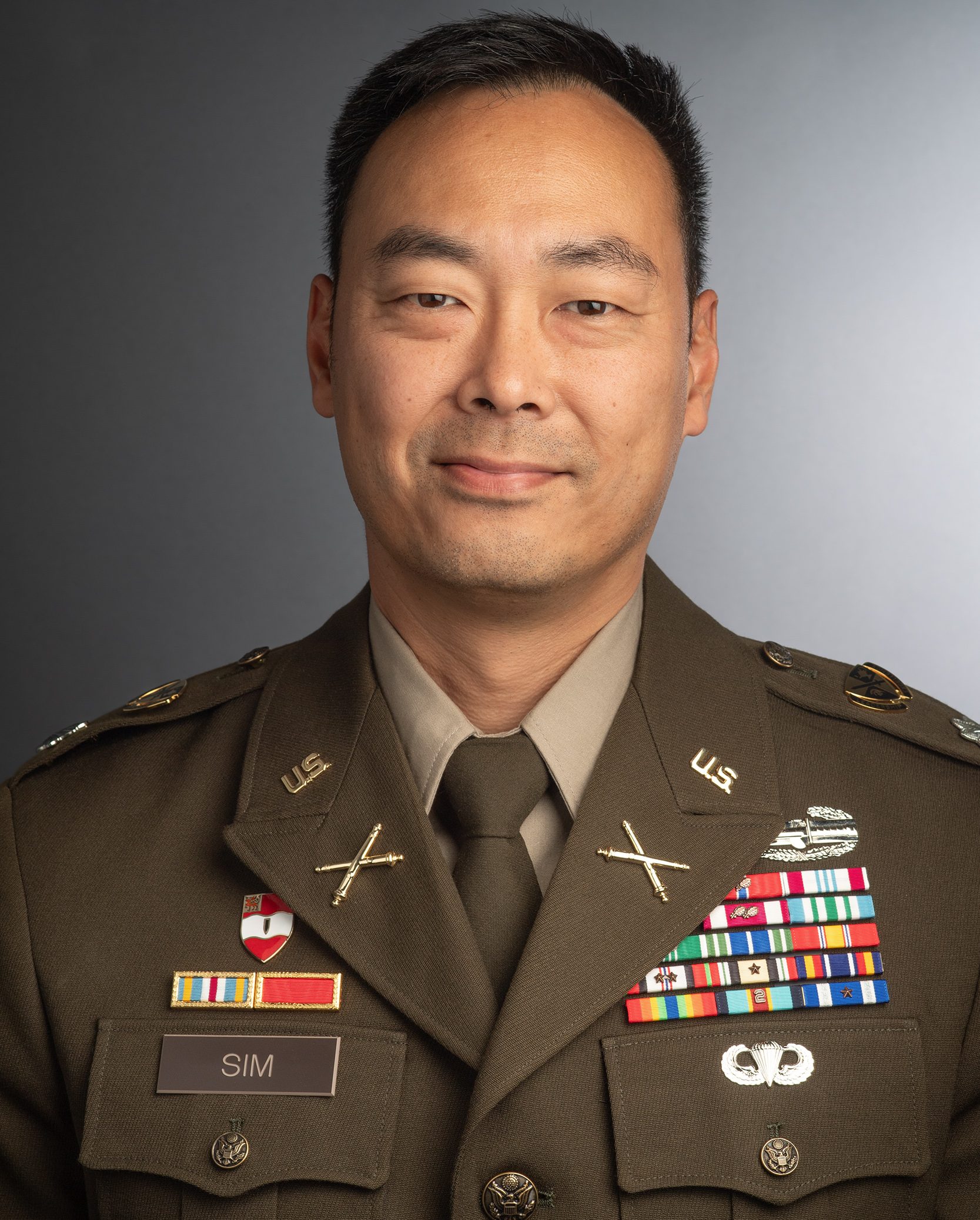A Journey of Service and Leadership: A Conversation with Army Officer Mike Sim, JD ’99
Lieutenant Colonel Mike Sim ’99 recently sat down with the SHSAA to discuss his journey since graduation. As a longtime Army officer, Mike’s career has taken him all over the world, and he was eager to reflect on how his experiences, including his time at Stuyvesant, influenced his path. Mike’s journey took an unexpected but fulfilling turn after graduating from Stuyvesant. Upon leaving, he initially attended New York University (NYU) for his undergraduate degree in Political Science. Like many students in the post-9/11 job market, Mike found himself facing uncertainty about his future. “I didn’t really have a plan,” he admitted. “But I decided to go to law school because I thought I needed something more.” However, his first year of law school at NYU made him realize that, despite his academic success, something was missing.
“I was doing okay in law school,” Mike explained, “but I felt this void. I wasn’t feeling fulfilled. I needed something more meaningful.” This feeling pushed him toward service, something he had been interested in for a long time but had never fully pursued. To bridge the gap between law school and his evolving aspirations, Mike enrolled in the ROTC program at Fordham University in the Bronx. “It was during law school that I finally found what I was looking for. It was service – being part of something bigger than myself,” Mike shared.

In 2007, after completing both law school and ROTC, Mike was commissioned as an artillery officer in the U.S. Army and his career in the service took him across various postings, from Fort Sill, Oklahoma, to Fort Cavazos, Texas, and overseas to Iraq, Afghanistan, and Europe. His experiences as an officer, particularly during deployments to Iraq and Afghanistan, shaped his view of leadership and service. Mike’s passion for service deepened when he worked as an instructor at MIT’s ROTC program in Cambridge. “It was humbling to be in a classroom with so many brilliant students. These young men and women chose to serve, and that dedication was inspiring,” Mike said. His time teaching also solidified his love for mentoring and developing others. “It reminded me of the impact my own ROTC instructors had on me,” he reflected.
In addition to teaching, Mike’s career took him to the Naval War College, where he earned a Master’s Degree in National Defense and Strategic Studies. “That experience was exciting, challenging, and humbling. The caliber of people I got to work with there was extraordinary,” he said. Afterward, he returned to Fort Drum, New York, before taking on a role at a NATO headquarters in Italy. His military journey brought him full circle back to teaching when he was selected to lead the ROTC program at the Rochester Institute of Technology (RIT) in 2024.
During the interview, we asked Mike about his time at Stuyvesant and how it shaped his military career. “Stuyvesant was definitely a place where I could explore my interests. It wasn’t just about academics—it was a place where I got to be creative,” Mike said. He pointed to his involvement in photography and creative writing as examples of how Stuyvesant gave him the opportunity to engage with different mediums. “It wasn’t something I expected, but those experiences were formative. They taught me how to communicate with others, how to be a better leader, and how to think critically.”
Mike reflected on how these teachers not only equipped him with technical skills but also instilled a sense of confidence that served him well throughout his career. “Those teachers created supportive environments where I could experiment and grow. I was terrified of writing back then, but their feedback was always constructive and encouraging,” Mike explained. He saw this focus on communication as essential for his leadership role in the Army. “In the military, you need to be able to lead people, and that means communicating effectively – whether you’re giving orders or inspiring people.”
When asked if he could go back and give advice to his high school self, Mike’s response was thoughtful. “Don’t be afraid to ask for help,” he said. “I think a lot of us, especially at specialized schools like Stuyvesant, are afraid to admit we’re struggling. But the truth is, there’s no shame in asking for help. It’s a strength, not a weakness.” He emphasized that asking for assistance and learning from others are essential skills in any career, especially one as demanding as the Army.
Mike’s story is a testament to the power of exploring different interests and being open to new opportunities. His path from Stuyvesant to a distinguished military career shows how high school experiences – whether in the classroom or through extracurricular activities – can have a lasting impact. His advice to students today is clear: embrace every opportunity, ask for help when needed, and remember that the skills you develop early on can shape your future in unexpected ways.
